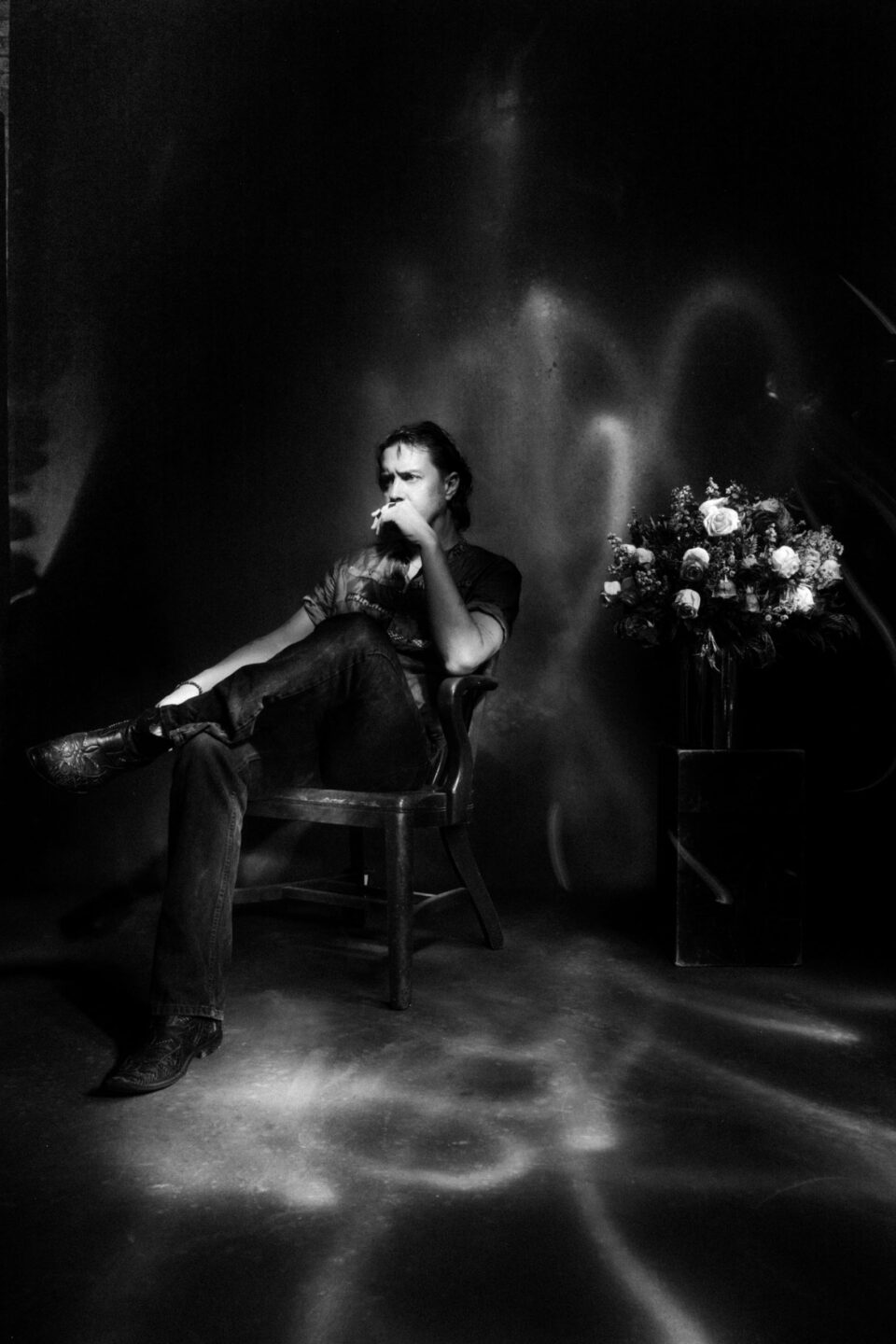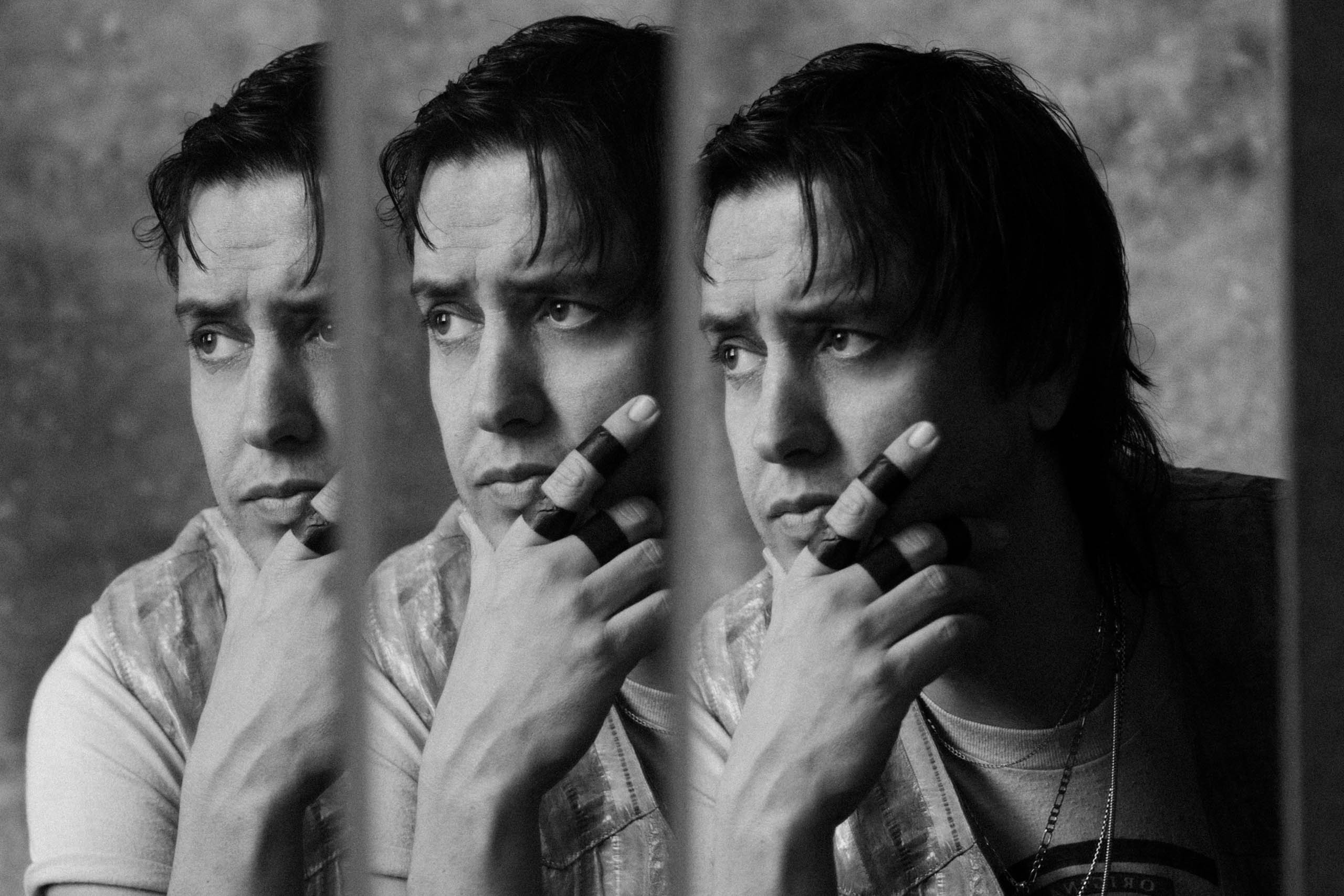Julian Casablancas established The Voidz as a venue for his most experimental impulses. He’d already seen great success as the singer and ringmaster of The Strokes, with its run of flinty, catchy rock hits, but still felt the need to stretch out. So just over a decade ago, The Voidz were born, a new setting for wild collisions of genres and ideas, deep thoughts and weird notions. The singer remains committed to The Strokes (“my day job,” as he puts it), touring big rooms and picking up their first GRAMMY in 2021 for Best Rock Album—a nice mid-career accolade. But The Voidz fulfill a different role for him. And 10 years after the release of their debut album, Tyranny, the project has now been around long enough, and created enough music, to be a fully established entity with their own history and audience.
“It’s a thing now, a solid thing that has its own ecosystem, but we’re still kind of striving to get where we want to be,” says Casablancas. The next step in that evolution is The Voidz’s third studio album, Like All Before You, their first in six years. It was recorded on two coasts and interrupted by a pandemic, plus Casablancas’ move from Venice Beach back home to New York. As he continues to worship the groundbreaking example of The Velvet Underground, the band leader is forever searching for sounds forward-leaning, accessible, and “sexy.”
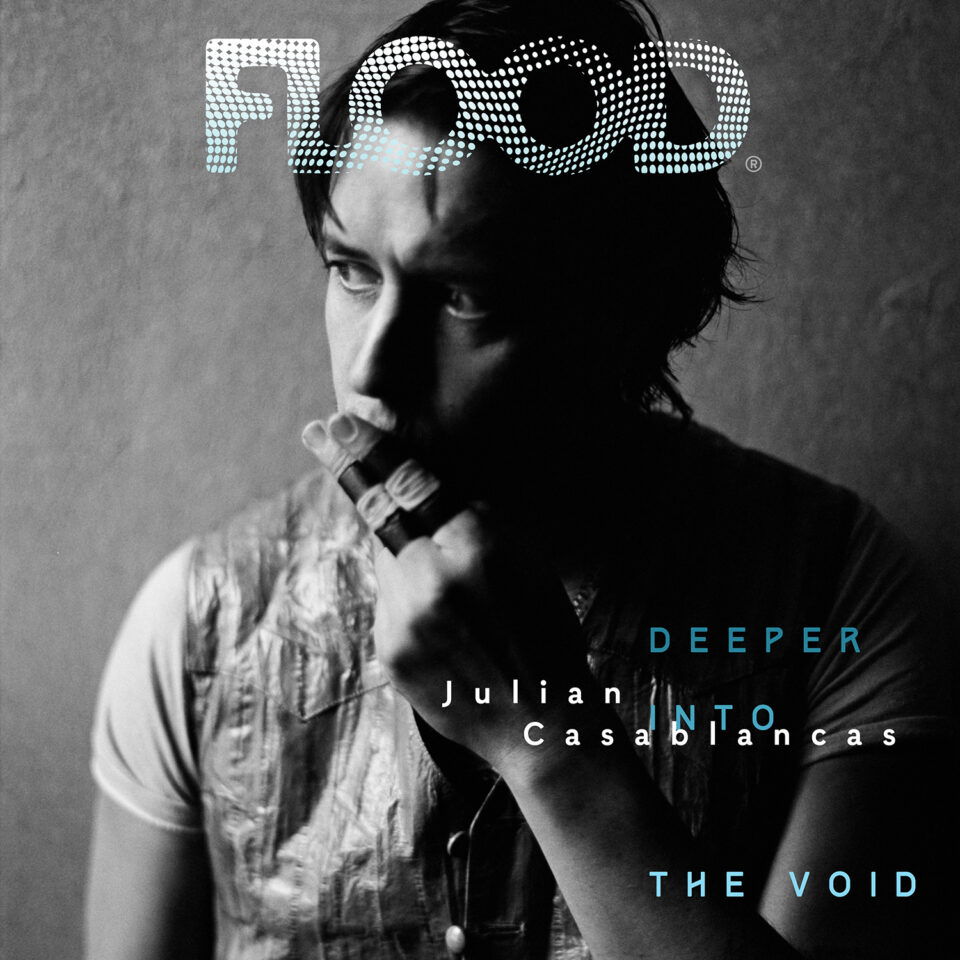
Photography: Ebru Yildiz Cover design: Jerome Curchod
At the moment, Casablancas is back in Los Angeles for several days of prep work for the new album release, peppered with the usual rounds of photo shoots and press interviews. It’s a weekday afternoon and he’s sitting with a caffeinated beverage on the rooftop patio of a small boutique hotel on the eastern edge of Hollywood. His bare arms reveal a scattered collection of tattoos. Most of them date from his early twenties (famously including a large spider on his right arm), with the addition of some self-made scrawling on his skin made during more recent “pandemic boredoms.” He rubs one on his left bicep and adds, “It’s kind of faded. I need to retouch, stick and poke.”
Casablancas lived in LA for several years, and settled with his family in Venice Beach—once birthplace to The Doors and one corner of the West Coast hippie dream, an urban beachside setting of skaters and neighborhood canals. For a rocker so associated with New York City to end up there was a bit like the revelation that Chuck D of Public Enemy had long since moved from the concrete boroughs to sunny Santa Barbara. While many New Yorkers are known to harbor dismissive attitudes about Los Angeles, Casablancas says he never shared them. “I’m lucky to live in either,” he says. “I guess my official stance is: quality of life is higher in LA, and the quality of art is higher in New York, with respect to both.”
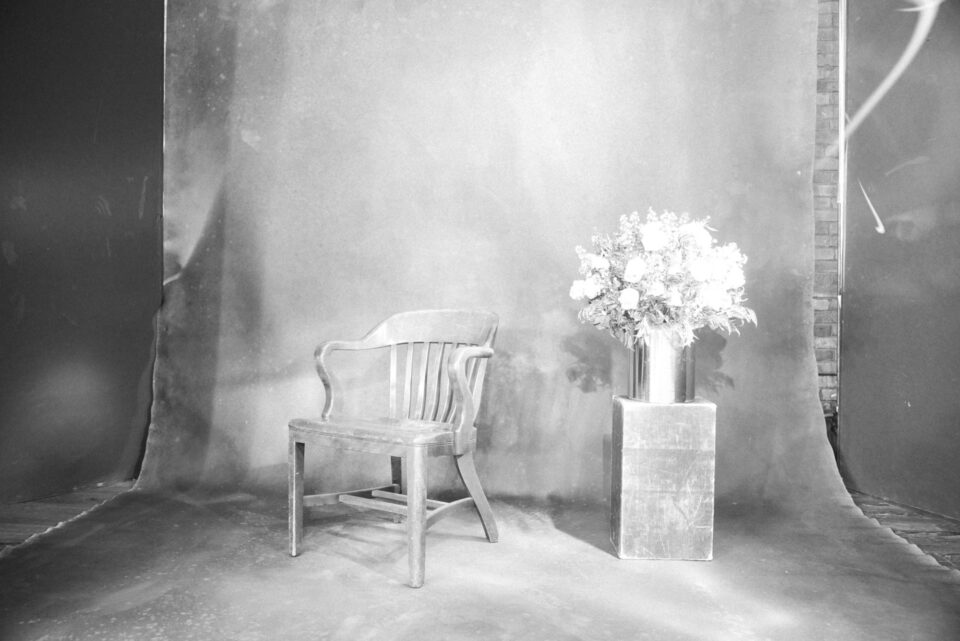
“The mission has always been the same: just trying to make something that’s inspiring, accessible. It’s hard to sound big and also do what we’re trying to do.”
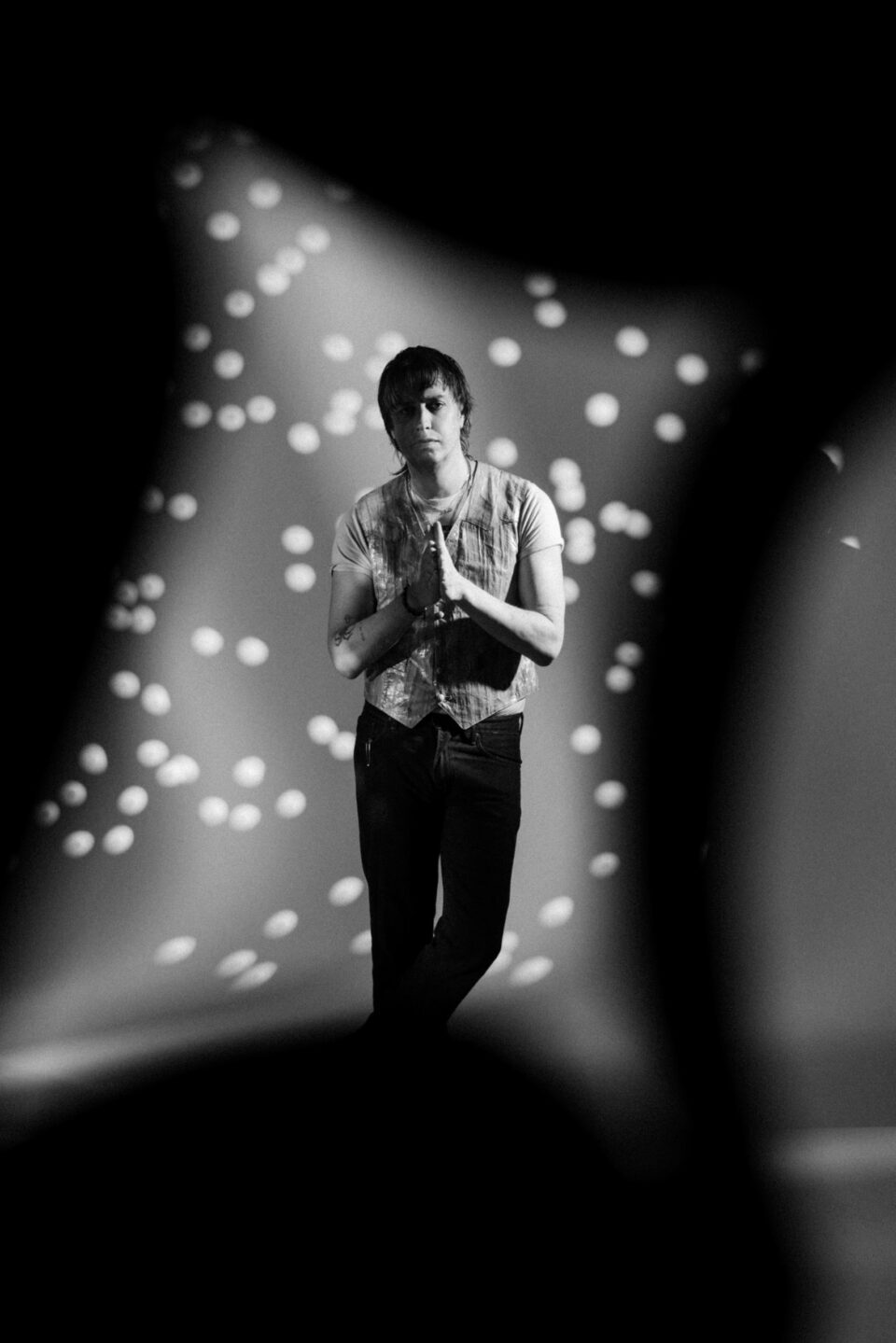
He’s back in New York now, with an apartment in Manhattan, and a family home Upstate about 90 minutes outside the city. “I’m secretly suburban as much as I can be. I’m a double agent,” he says with a laugh. “Soccer dad and creature of the night. I think being in nature is nice. If you’re stuck in a city too long, it doesn’t feel great to your psyche. I think having kids is an intense responsibility, so it just comes with the territory. I’m happy with it.”
Somewhere during his time in Venice, The Voidz got back to work, with the first sessions beginning five years ago. The original plan was to work again with producer-engineer Shawn Everett, who’d guided their first two albums, and now wanted to step things up to a bigger sound by recording the band with supreme-quality gear. While he didn’t end up working on the record’s 10 tracks, The Voidz recorded much of the album at Electro-Vox on Melrose Avenue, one of the oldest recording studios in the city, right across the street from Paramount Pictures.
In Everett’s place were Ivan Wayman and brothers Justin and Jeremiah Raisen (a.k.a. SADPONY). “They’re pretty interesting. They’re different,” Casablancas notes of the Raisen brothers, who are as fluent in pop and hip-hop as they are in avant-garde rock, from Charli XCX to Kim Gordon. “They almost remind me a little bit of Daft Punk on some level.” Playing on the record is the same lineup that was established on The Voidz debut: drummer Alex Carapetis, keyboardist Jeff Kite, bassist Jake Bercovici, and guitarists Amir Yaghmai and Beardo. The band worked from ideas for sounds, songs, and riffs initially shared via Dropbox.
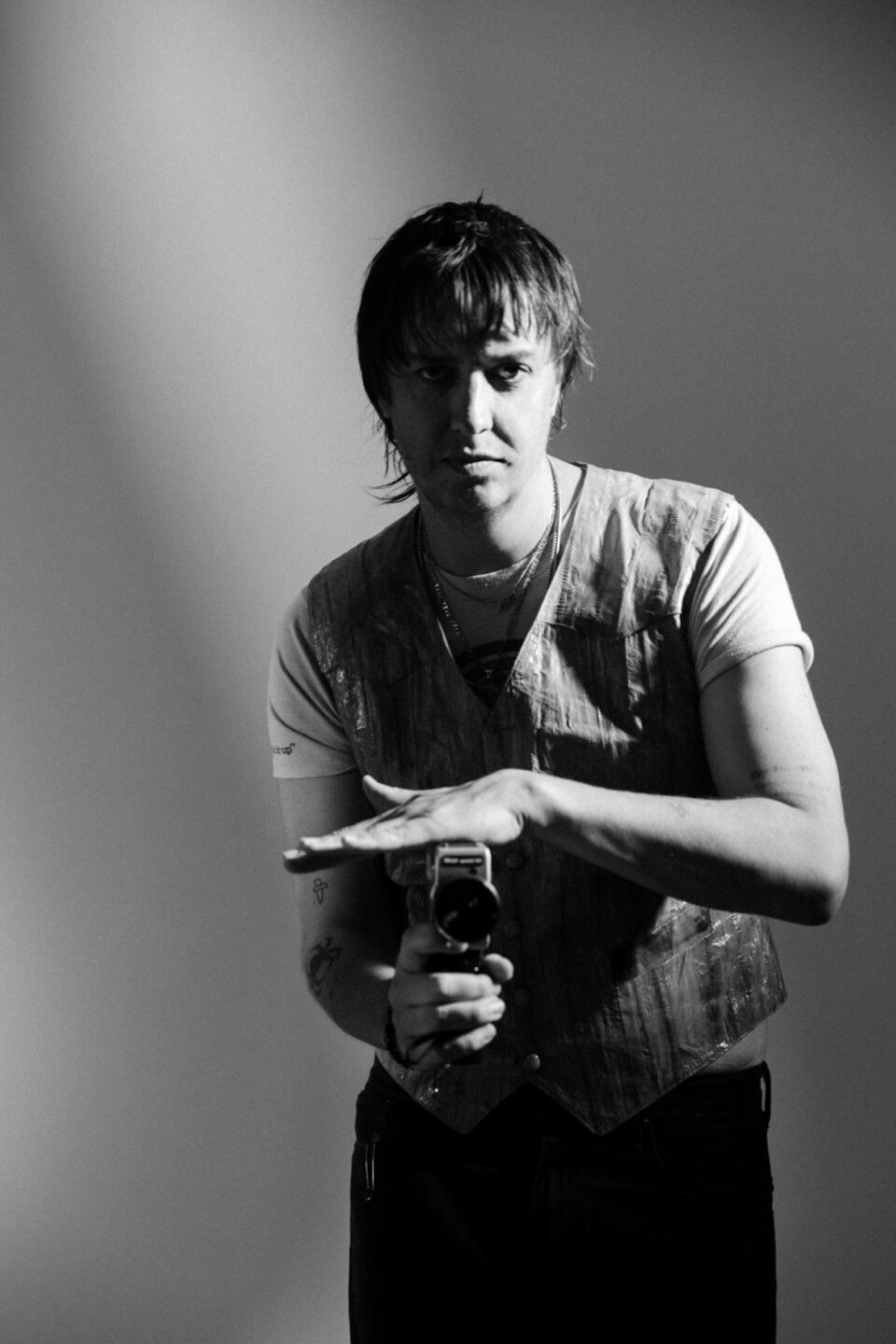
“I’m secretly suburban as much as I can be. I’m a double agent. Soccer dad and creature of the night.”
The original idea Everett had suggested for a bigger studio found its way most dramatically on the biting “Prophecy of the Dragon” and shimmery, dancefloor-ready “Flexorcist.” The former erupts with a heavy-metal guitar riff from Beardo amid some post-punk goth gloom and a sneering Casablancas vocal: “East Berlin taste the fucking decadence, I used to be a lounge lizard / Now look at me, I’m a wizard.” “Having that bigger, slick, produced sound was of interest to us at the time,” explains the singer. “The mission has always been the same: just trying to make something that’s inspiring, accessible. It’s hard to sound big and also do what we’re trying to do, so the fact that we hit on that a few times was exciting.” That said, he doesn’t foresee the band sticking to that heavily produced sound as the new identity of the band. “It’s just something that we did for this record,” he insists. “This is our big studio record, I guess.”
For Casablancas, taking that step on the new album felt like Nirvana turning from raw early demo recordings to the massive sound of Nevermind. The experience also reminded him of making The Strokes’ third album, 2006’s divisive First Impressions of Earth, with producer David Kahne. On several songs, The Strokes sounded much less like a garage band than on the previous two releases. “Things were sounding bigger and more kind of studio pro, for lack of a better word,” he muses now. “And maybe sometimes it veered too far here or there, but at its best it worked on some songs, so I’m not afraid of that.”
There’s also the driving “Square Wave,” a synthy, broody pop echo of New Order or The Cure with glimmering modern effects on several vocal passages. “Spectral Analysis” floats on a dreamy piano melody, as Casablancas sings a contemplative message of black comedy: “I take it back / Not sure about this suicide pact / Afraid it’s too late / We put cyanide in your cake, my mistake / Well, it’s been great / See you at hell’s or heaven’s gate.”
Bigger sounds or not, The Voidz’s music remains crazed and surprising. Adding to its mix of textures, the band also worked in guitarist Yaghmai’s LA-area garage studio to bring some grit back into the music. While there, The Voidz stepped out to reveal some of the songs in progress at a secret performance in a Venice Beach speakeasy for some audience feedback. It’s a practice that’s largely died out for established acts, who generally don’t want the first reveal of new music to be a poorly recorded iPhone video posted on social media. “There’s such an advantage of playing a song in front of a crowd,” says Casablancas. “You kind of instantly know what works and what doesn’t. You know what your popular songs are. When we’re choosing a single, it’s almost like, ‘Man, I wish we could just play four or five shows and just see.’”
The new album was announced with a video trailer that combined techno-psychedelic imagery and the all-synth instrumental track that opens the album, “Overture.” It’s layered with Casablancas performing a solemn spoken-word message (which doesn’t appear on the album): “Oh, the suffocating, endless talk of oppressive men with their like-minded, indifferent killers in the shadows, making a sham of storied values, ruling and deceiving the unlucky into their miseries since the dawn of society. Soon we’ll be crusted and dusted like all before us …” Says Casablancas of the words he recorded on his phone: “That kind of came together in two seconds. It wasn’t meant to be poetic. It was political thoughts that I have. Sometimes it’s good when you don’t overthink things, you know?”
One of the album’s first music videos combined “Flexorcist” and “Prophecy of the Dragon,” starring a wiseguy demon character (a takeoff on the Lord of Darkness from Ridley Scott’s 1985 film Legend) riffing an impromptu media critique against CNN and Fox News. He also advises Jim Morrison to get on TikTok. Casablancas calls the video production “a lot of philosophical and dumb comedy ideas flying together and meeting in a visual bonanza.” The social commentary included is intentional. “I think it’s different in the arts. You’re allowed to say things, because it’s not monitored or judged or influential in that same kind of way. It’s similar to how movies work, where you can say there’s these evil billionaires, but if you’d say it in real life about a real one, then you become the casualty.”
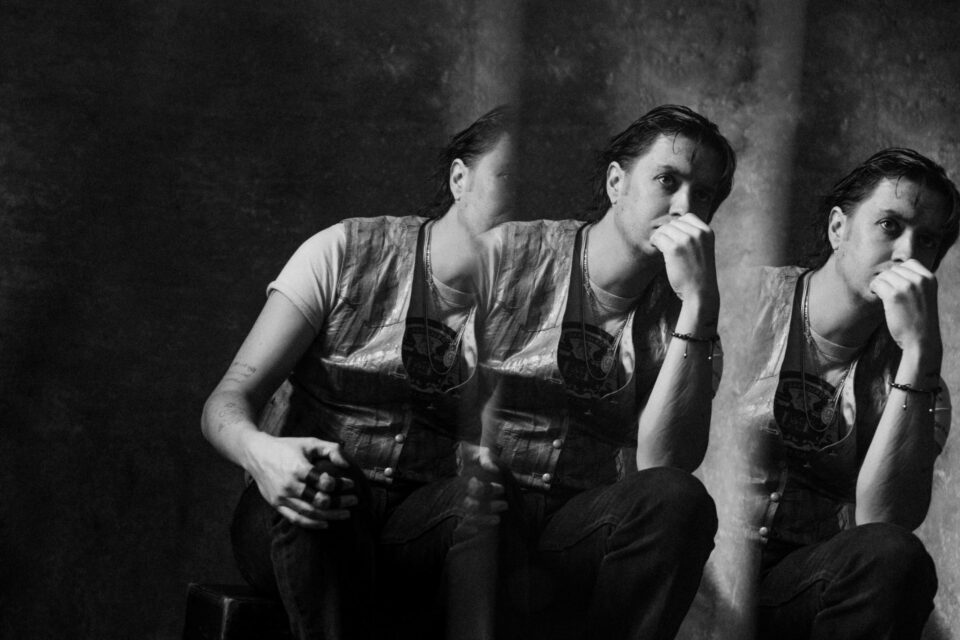
“[The Velvet Underground’s] idea of ‘We’re going pop’ kind of hits that magical sweet spot. I have that in the back of my mind when we’re going ‘big.’ It’s not like trying to sell out, but trying to make it sound clean and big was fun.”
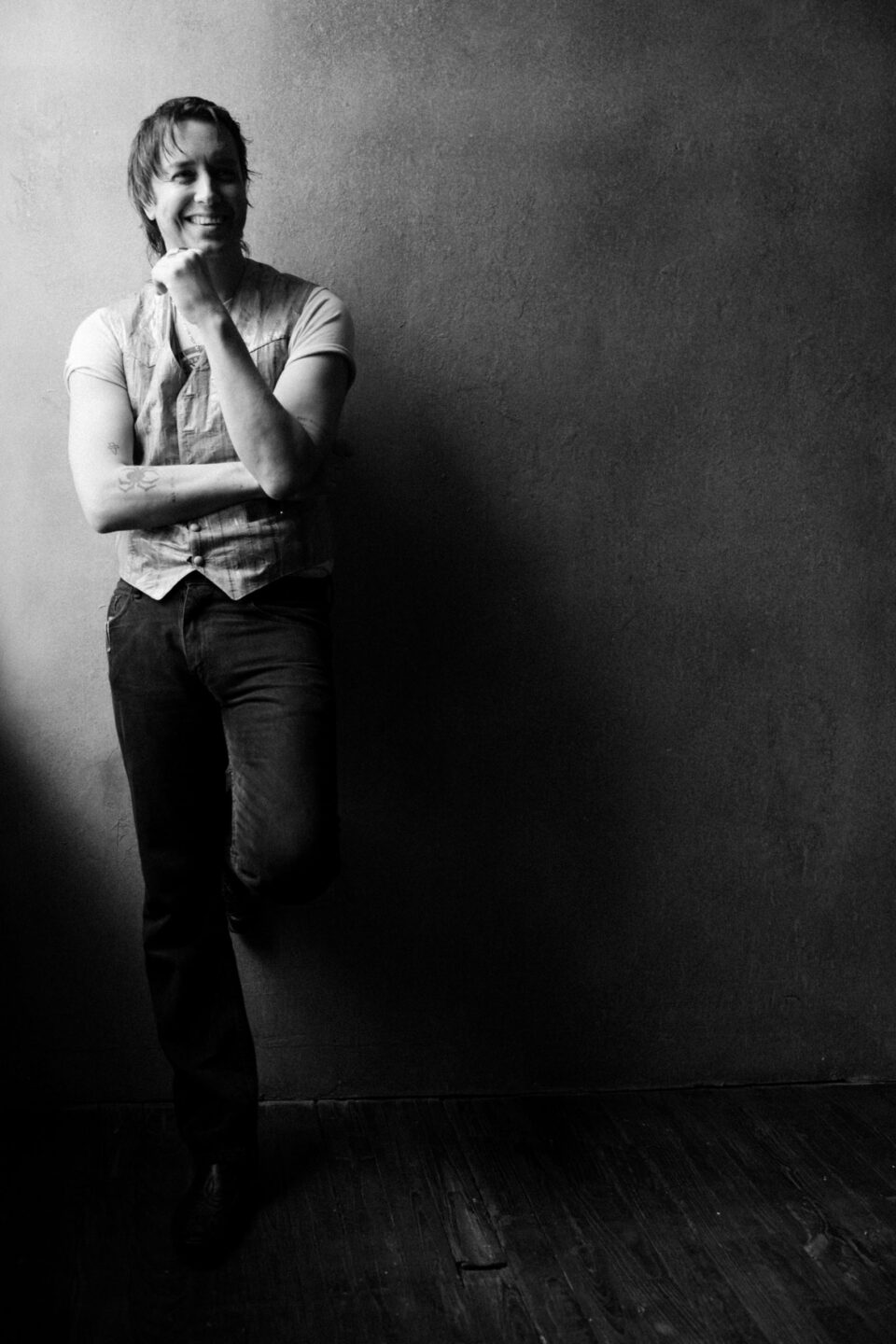
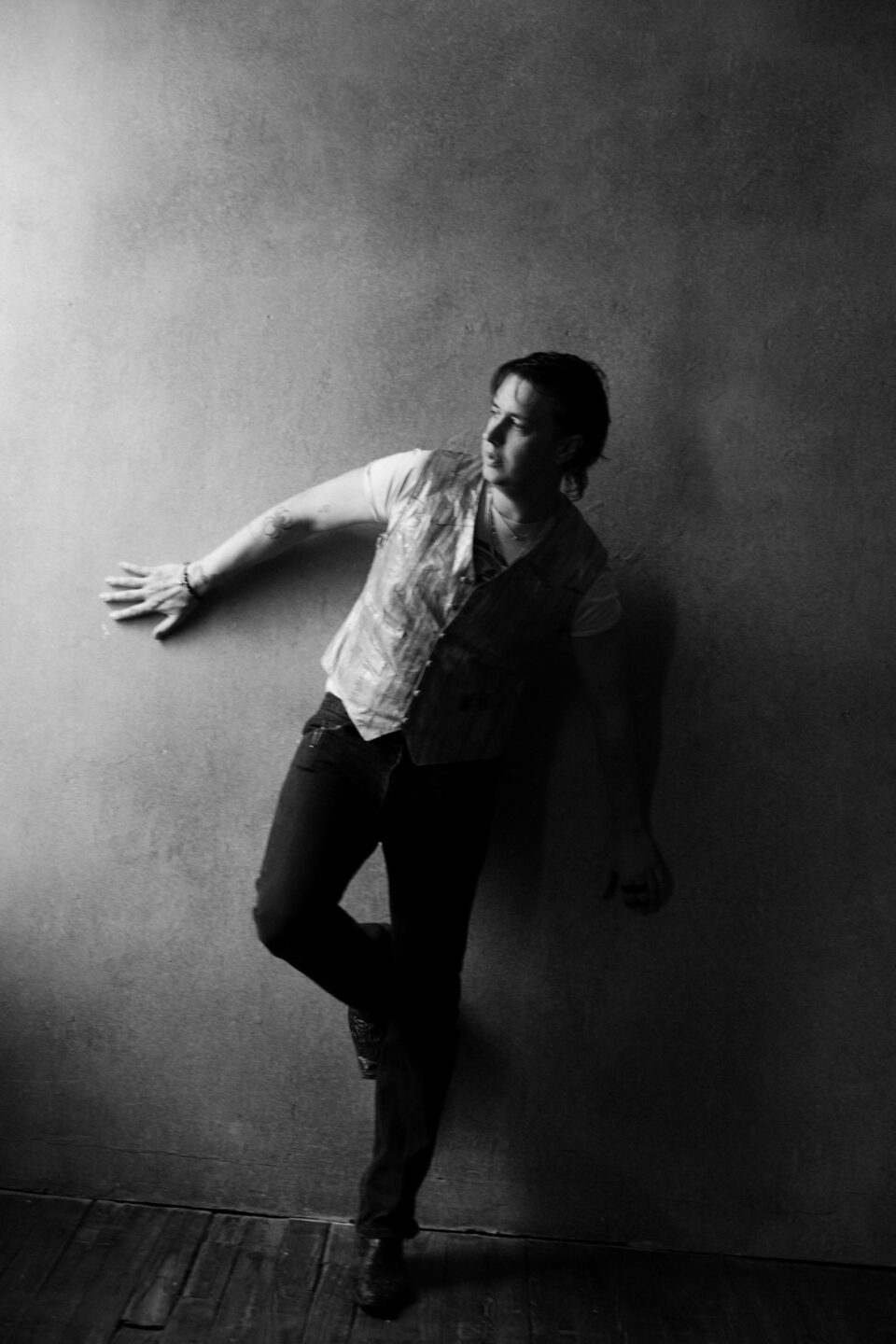
As has been true through his career with both The Strokes and The Voidz, the continuing influence of The Velvet Underground remains central for the singer. “They were so far ahead, they still sound sonically amazing,” he says, still marveling. He met Velvets leader Lou Reed a few times—first as a young fan at a book signing (he asked Reed to sign and dedicate a copy to “The Strokes”). Later, after his own band was on the rise, Casablancas got to perform Reed’s transgressive 1972 solo pop hit “Walk on the Wild Side” with him. The Voidz singer’s personal favorite from the Velvets catalog is Loaded, which was an intentionally catchier collection of tunes, but with many of the band’s sharp edges intact. “They’re trying to sound poppy, but it’s still pretty edgy and weird. They can’t help themselves. Their idea of ‘We’re going pop’ kind of hits that magical sweet spot.
“I have that in the back of my mind when we’re going ‘big,’” he adds of his own intentions with Like All Before You. “It’s not like trying to sell out, but trying to make it sound clean and big was fun.”
Casablancas has been at this for about 25 years now. With all that experience behind him, if he ever had the urge to sell out to the commercial imperative, would he know how? “I think I could, but it could go bad,” he says, mulling over the prospect. “Fans could sniff it out and be like, ‘This is garbage.’ There have been plenty of artists trying to go for what seems like solid-gold guaranteed success, and it’s the source of ridicule for years to come.” He laughs, adding, “So it’s definitely not worth it, in my opinion.”
“There have been plenty of artists trying to go for what seems like solid-gold guaranteed success, and it’s the source of ridicule for years to come. It’s definitely not worth it, in my opinion.”
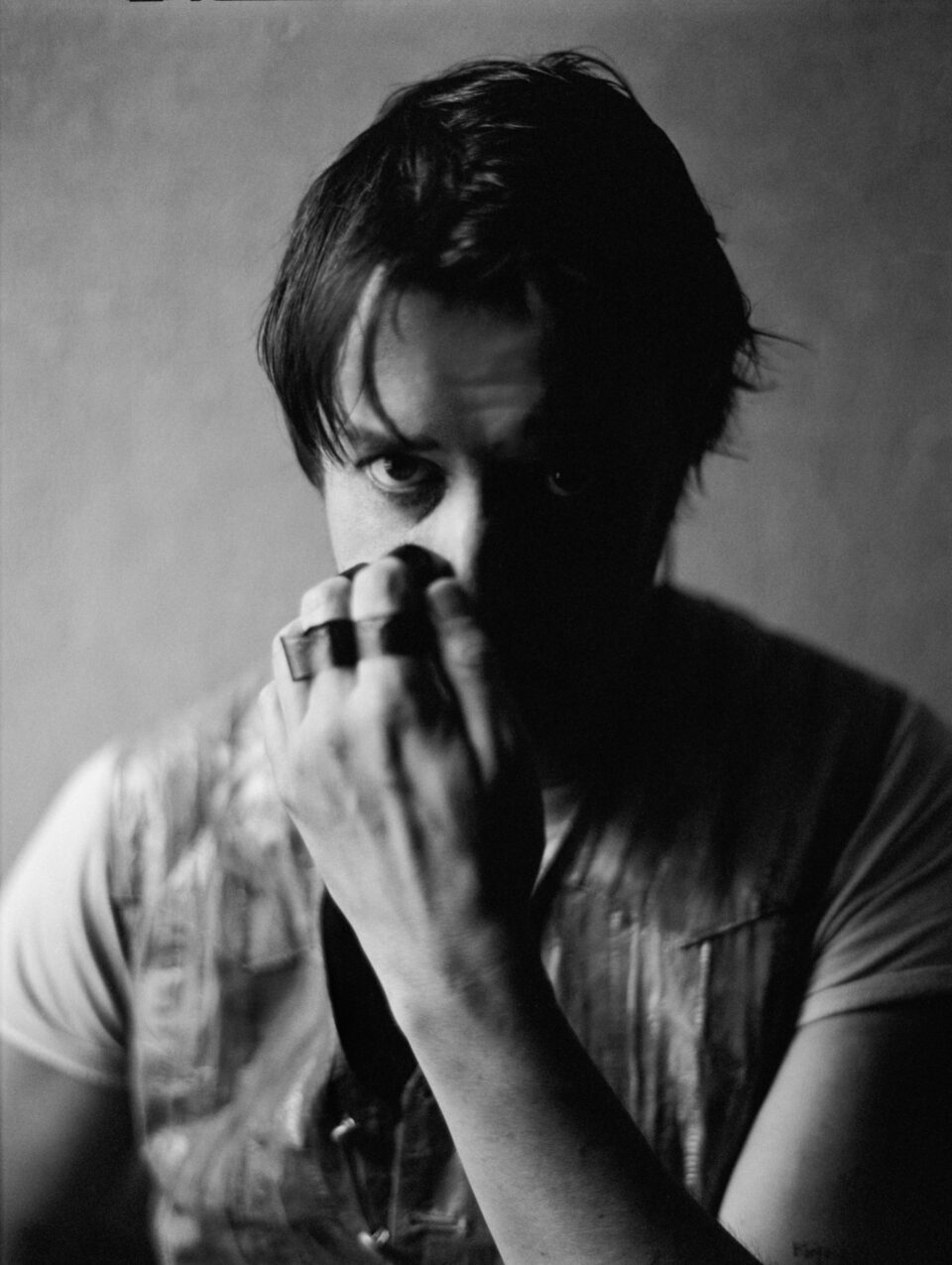
Unless you don’t care about such things? “If you’re a sociopath or nihilist, you mean?” he asks with a laugh. “I think that’s what a lot of pop people are like. They just are in tune with what will click with the masses: What a four-year-old will like, what CVS will play, what an Uber driver will leave on a station, what pop radio people will play. I respect it. Like someone who’s good at playing the stock market or something, it’s a skill. I don’t think it’s technically art, but I don’t judge if art is better than business.”
For The Voidz, he was looking for something different. The band’s roots are in his 2009 solo record, Phrazes for the Young, where he first worked with some of the players who ended up in The Voidz. “I was sober. I was really starting over,” Casablancas explains of his first project outside of being the frontman of a pop-culture sensation. “That was me kind of learning to crawl, walk again, trying different things. And then as soon as I was rehearsing for the live shows, I realized that I liked working in a band environment.” The first recording sessions with the newly formed Voidz came in 2013 with producer Everett, working in a studio built above The Strand bookstore in Manhattan.
“It was easier for people to dismiss it as purely a vanity project of Jules’ in the beginning, and now it’s harder to do. We tried to get that feeling of being a true band right from the start.” — Voidz guitarist Amir Yaghmai
“Going into New York that first time, it was kind of whirlwind-y and just trying to understand everyone’s personalities and figure out what it is that Jules was after,” recalls Voidz guitarist Yaghmai, speaking during a joint Zoom interview with keyboardist Jeff Kite. “Once you started to hear the songs, it definitely felt like something different.” While Casablancas didn’t issue any sort of proclamation on the new band, it was soon clear that it was a serious project, not the passing whim of a rock star. He’s remained committed to it ever since. “It was easier for people to dismiss it as purely a vanity project of Jules’ in the beginning, and now it’s harder to do,” says Yaghmai. “We tried to get that feeling of being a true band right from the start. And we did become friends quickly.”
From that first album was a debut single, “Human Sadness,” which may have come as a surprise to anyone expecting music like The Strokes’. “I’m sure that took them for a spin, if what they’d known and loved about him was Is This It,” says Kite with a grin. “It probably jolted them.”
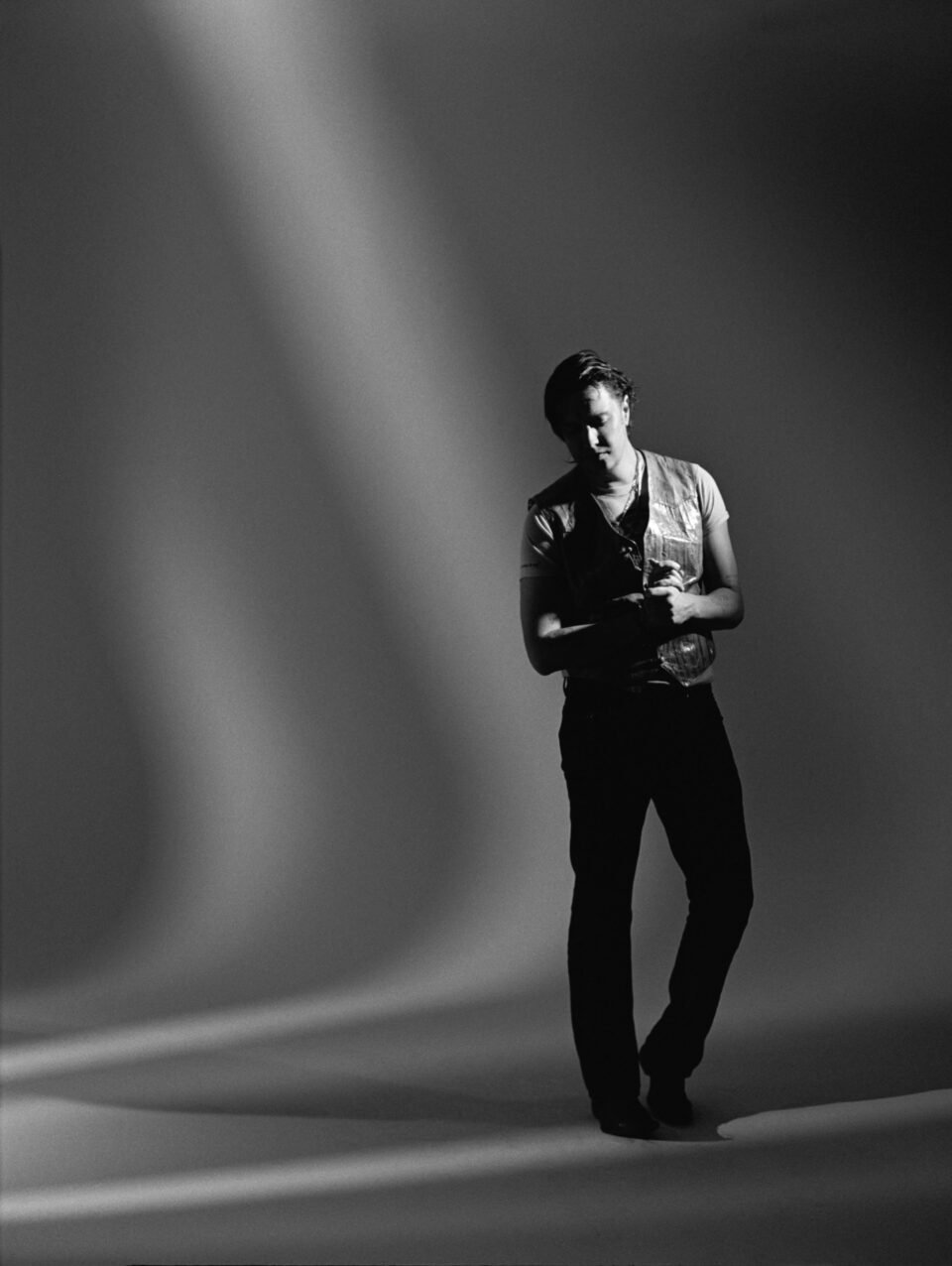
The band’s original lineup has survived these last 10 years as a meeting of the minds that turned out to be lasting. “We had all been in bands and dealt with all the cliché negative things,” says Casablancas. “It was kind of a long journey to find people that were in a similar place on many levels. We all have the same kind of dream of doing something as a band with other people that’s better than what we do alone.”
In the press and elsewhere, The Voidz were usually called an “experimental” rock band, which was really just a way of describing the kind of wide-open creative freedom that Casablancas could no longer count on with The Strokes. With that band’s success came complications, both internal and external. It’s harder to make wild left turns when so many people are watching and demanding more of that thing they already love about you. “Some of my dreams were kind of shattered a little bit along the way within that,” Casablancas says now. “And that took a while to get over. But that wasn’t gonna evolve the way I wanted it to. I just had to figure out a way to fulfill the original dream.”
That meant finding a way to push against boundaries after The Strokes hit, just to keep himself interested and engaged. “That crashed and burned because of personal infighting and youth and whatever ego of a successful young band bullshit,” he explains. “I’m still trying to get back on track fully and trying to make something popular that’s edgy and alien and new territory, but also catchy. Meanwhile, we’ve kind of matured, and so The Strokes can be its own new different thing now, which is cool and fun and easy. Still, I put a lot of blood, sweat, and tears into that.”
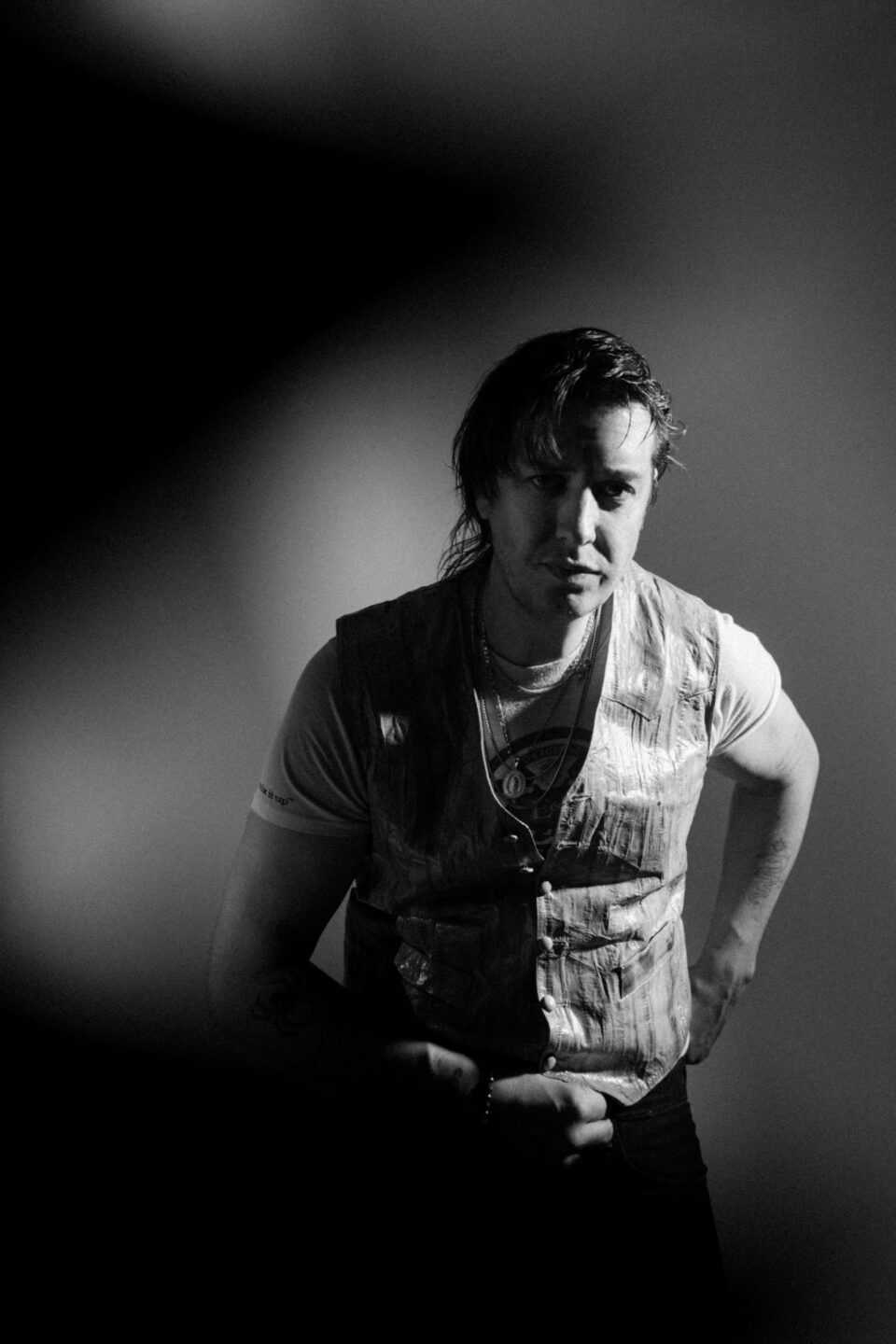
“We all have the same kind of dream of doing something as a band with other people that’s better than what we do alone.”
So while his day job has long been identified with a beloved, recognizable sound, his music with The Voidz was freer to follow whatever moments of inspiration came along. Another sign of that came ahead of the new album with the release last year of a shimmery, long-shelved track with Daft Punk called “Infinity Repeating,” which finally appeared on last year’s expanded 10th anniversary reissue of Random Access Memories. Not unlike Daft Punk, the music of The Voidz is meant to challenge popular expectations while reaching as many people as possible. “It’s trying to do something that’s pushing boundaries, but is also catchy enough to be popular,” the singer says. “That’s always, at least for me, a powerful combination.”
Getting there remains an adventure for Casablancas and The Voidz, frequently surprising themselves along the way. “People ask what kind of music it is,” Casablanca says with a shrug, then admits happily, “I really don’t know what to say.” FL
